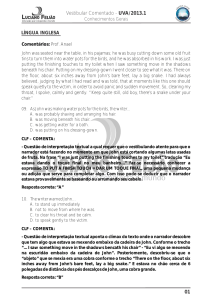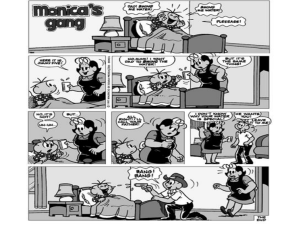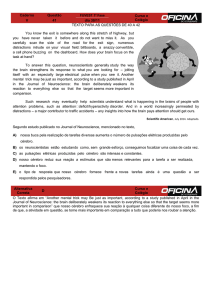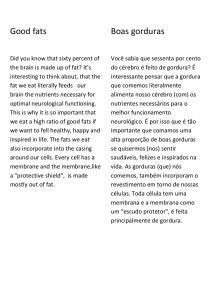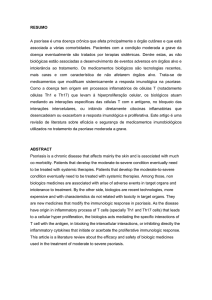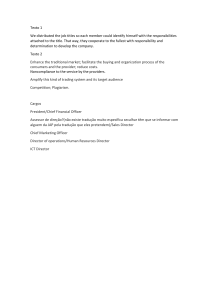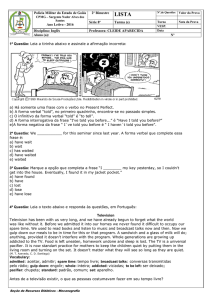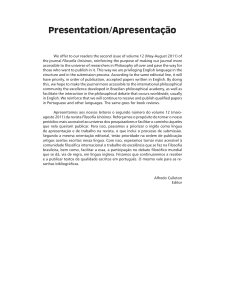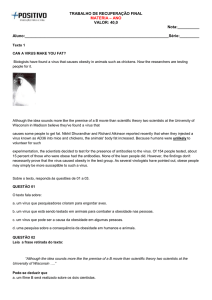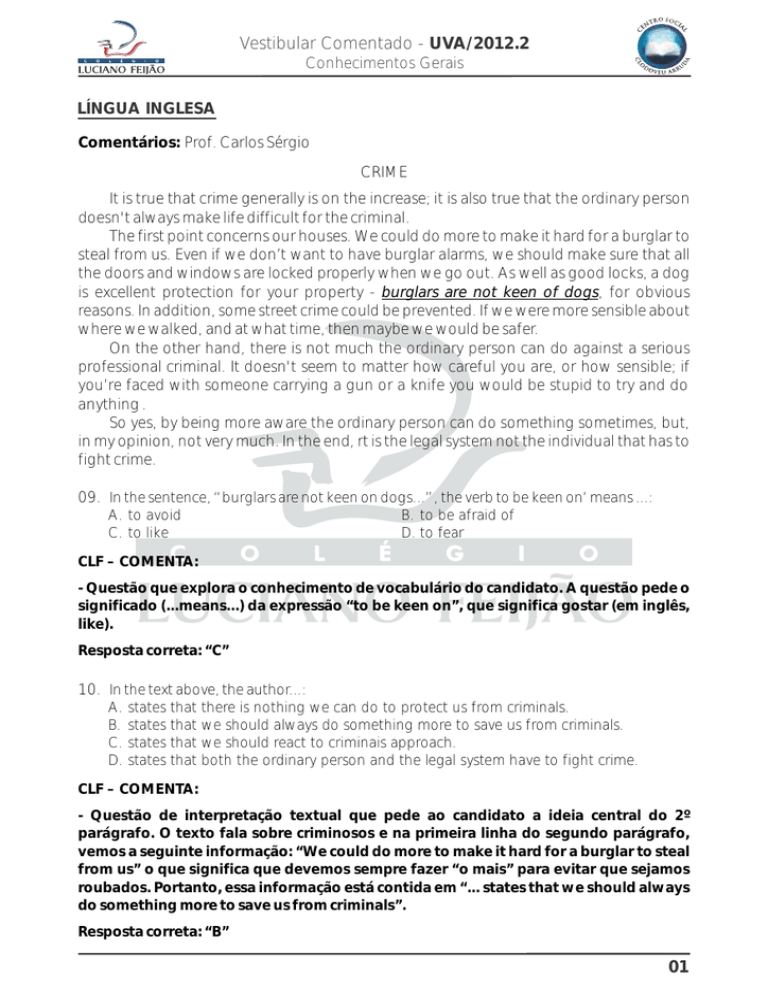
Vestibular Comentado - UVA/2012.2
Conhecimentos Gerais
LÍNGUA INGLESA
Comentários: Prof. Carlos Sérgio
CRIME
It is true that crime generally is on the increase; it is also true that the ordinary person
doesn't always make life difficult for the criminal.
The first point concerns our houses. We could do more to make it hard for a burglar to
steal from us. Even if we don’t want to have burglar alarms, we should make sure that all
the doors and windows are locked properly when we go out. As well as good locks, a dog
is excellent protection for your property - burglars are not keen of dogs, for obvious
reasons. In addition, some street crime could be prevented. If we were more sensible about
where we walked, and at what time, then maybe we would be safer.
On the other hand, there is not much the ordinary person can do against a serious
professional criminal. It doesn't seem to matter how careful you are, or how sensible; if
you’re faced with someone carrying a gun or a knife you would be stupid to try and do
anything .
So yes, by being more aware the ordinary person can do something sometimes, but,
in my opinion, not very much. In the end, rt is the legal system not the individual that has to
fight crime.
09. In the sentence, “burglars are not keen on dogs...”, the verb to be keen on’ means ...:
A. to avoid
C. to like
B. to be afraid of
D. to fear
CLF – COMENTA:
- Questão que explora o conhecimento de vocabulário do candidato. A questão pede o
significado (...means...) da expressão “to be keen on”, que significa gostar (em inglês,
like).
Resposta correta: “C”
10. In the text above, the author...:
A.
B.
C.
D.
states that there is nothing we can do to protect us from criminals.
states that we should always do something more to save us from criminals.
states that we should react to criminais approach.
states that both the ordinary person and the legal system have to fight crime.
CLF – COMENTA:
- Questão de interpretação textual que pede ao candidato a ideia central do 2º
parágrafo. O texto fala sobre criminosos e na primeira linha do segundo parágrafo,
vemos a seguinte informação: “We could do more to make it hard for a burglar to steal
from us” o que significa que devemos sempre fazer “o mais” para evitar que sejamos
roubados. Portanto, essa informação está contida em “... states that we should always
do something more to save us from criminals”.
Resposta correta: “B”
01
Vestibular Comentado - UVA/2012.2
Conhecimentos Gerais
11. Jesus, ________ is our savior, died for us.
A. whom
C. who
B. that
D. which
CLF – COMENTA:
- Questão sobre o tópico gramatical Pronomes relativos. Vemos que o antecedente do
pronome relativo who na sentença possui um antecedente pessoa. O pronome
relativo usado quando temos um antecedente do mesmo uma pessoa (Jesus) e o
relativo sendo seguido de um verbo, usamos who.
Resposta correta: “C”
12. He’d better go, _____________________________?
A. hadn’t he
C. didn’t he
B. would he
D. shouldn’t he
CLF – COMENTA:
- Questão que explora o conhecimento do tópico gramatical question-tag e da
expressão had better que significa seria melhor, na sua forma abreviada had=’d.
Sendo a oração principal na forma afirmativa (had abreviada) acompanhado do
sujeito he, o question tag será na negativa (hadn’t).
Resposta correta: “A”
02

